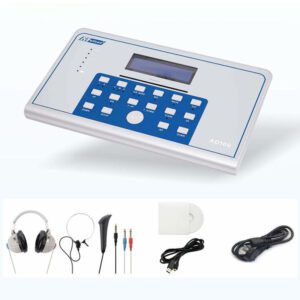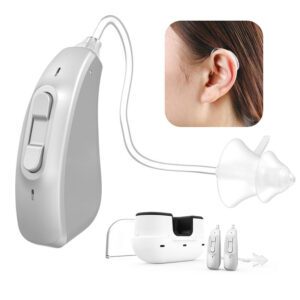
Hearing Loss is the most common sensory deficit in the elderly, but it does not mean that all elderly people have poor hearing. There are differences in the degree of hearing loss. Hearing loss in the elderly is not only related to age but also has other comprehensive and complex causes.
As the age increases, the elderly may cause hearing loss due to some chronic diseases; it may also be caused by various ear diseases in childhood or youth, such as otitis media, etc. Therefore, when age is superimposed on disease factors, the degree of hearing loss will be more serious than that of the elderly at the same age.
If the pure tone audiometry result is above 40 decibels, we recommend that the elderly wear Hearing Aids to compensate for hearing.
Although hearing loss does not affect longevity, it has large negative impacts on the quality of life of the elderly:
- Inaudible door knocks, sirens, and car horns may lead to safety accidents.
- Poor communication with neighbors, no active participation in recreational activities, home alone, low mood, anxiety, and depression.
- Misfits, isolation, anxiety, depression, accelerated cognitive decline, and increased risk of Alzheimer’s disease.
- The greater the hearing loss, the higher the risk of falling.
Wearing Hearing Aids benefits the elderly overall (physical, and mental) health. Wearing hearing aids reduced the risk of Alzheimer’s disease by 18%, anxiety or depression by 11%, and the risk of falls by 13%.
Healthy hearing enables the elderly to maintain the ability to live independently, do what they want to do, and have a higher quality of life.


